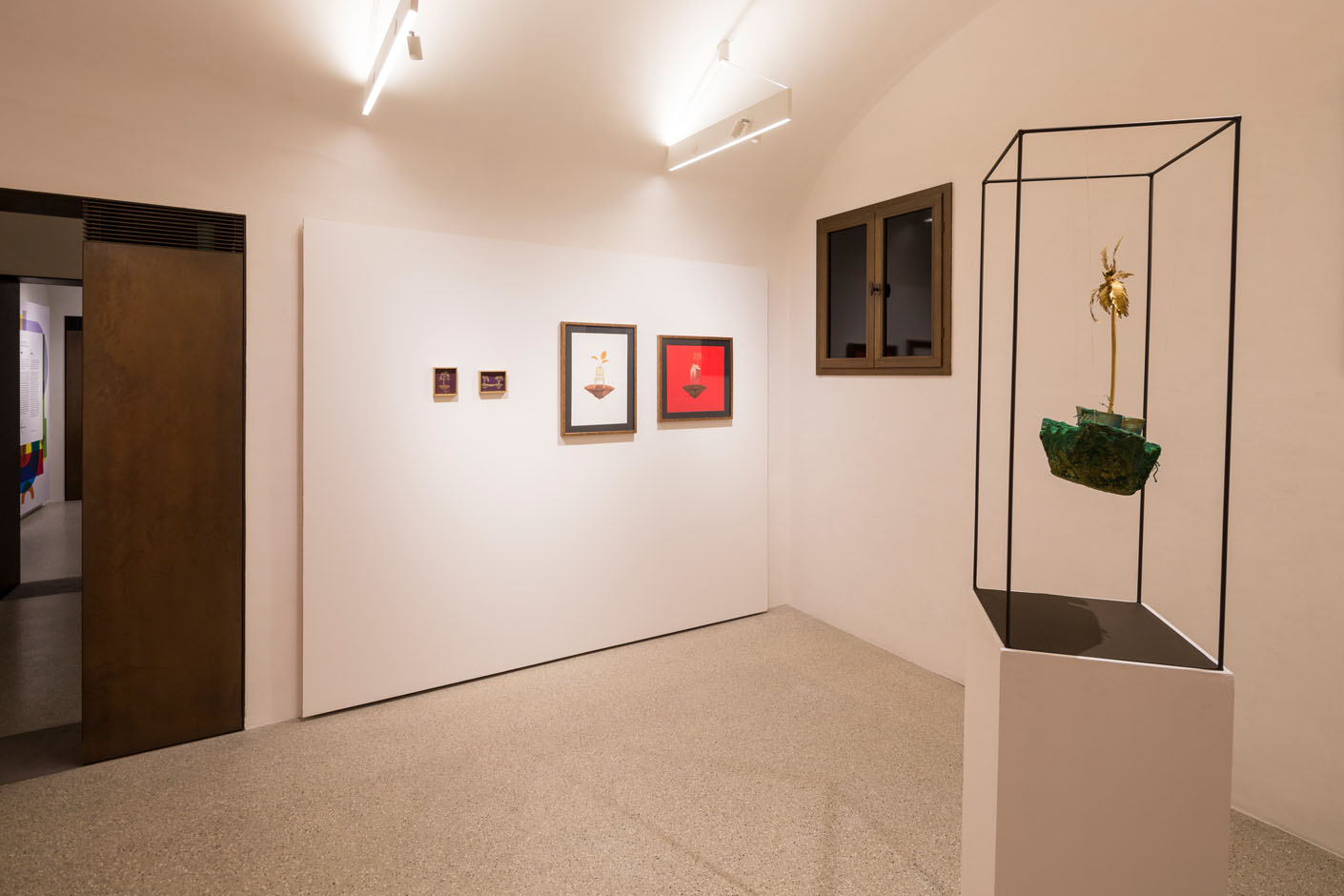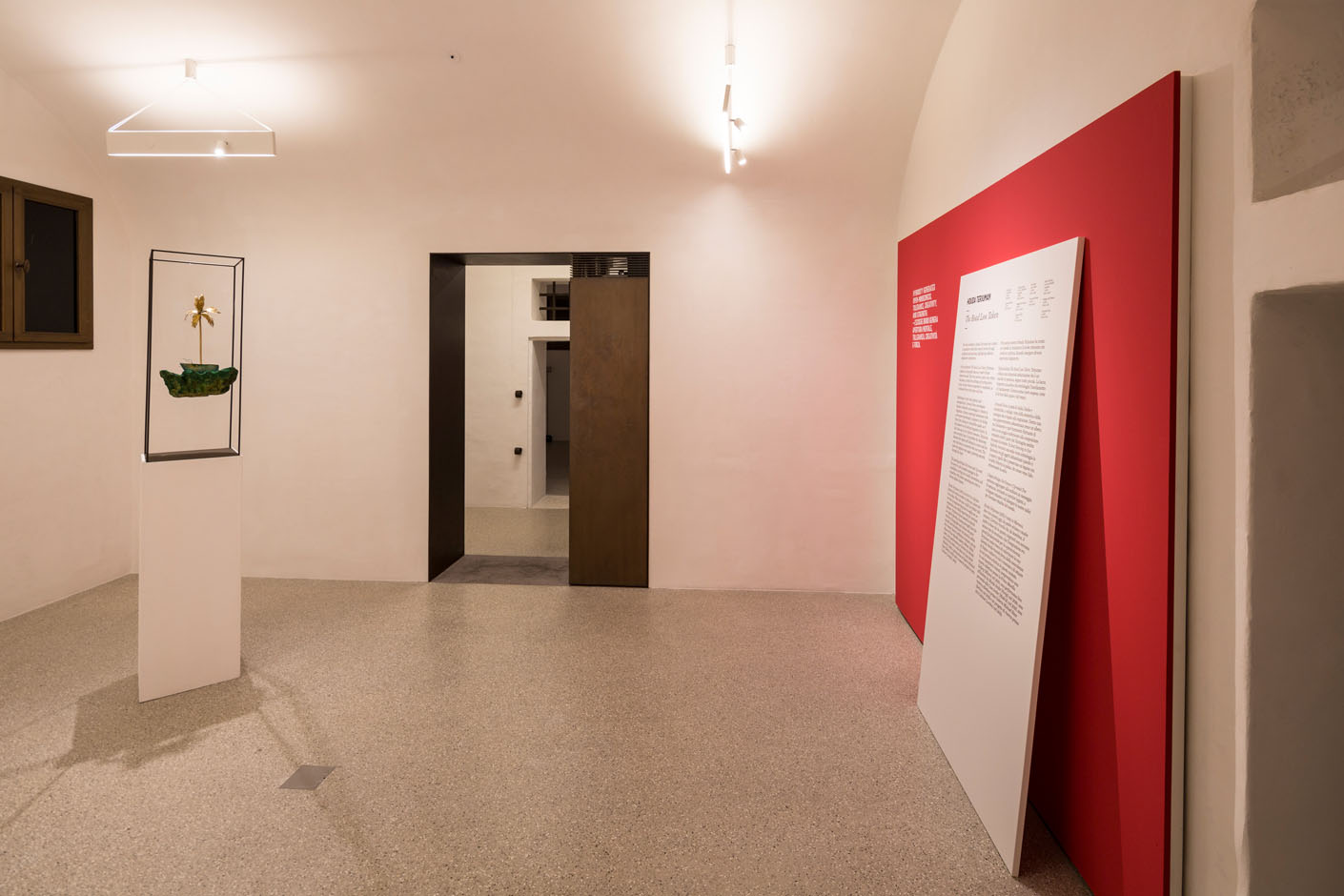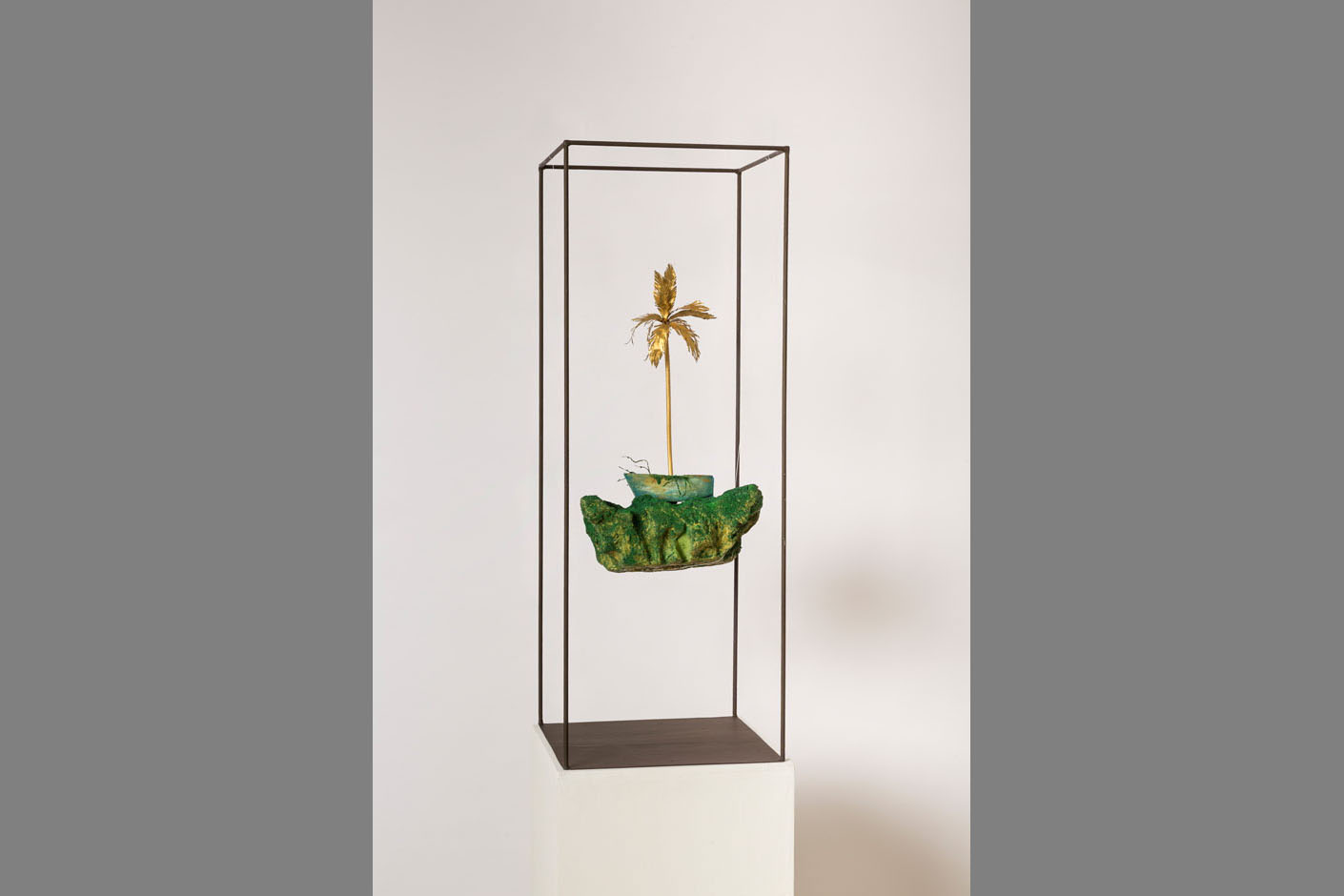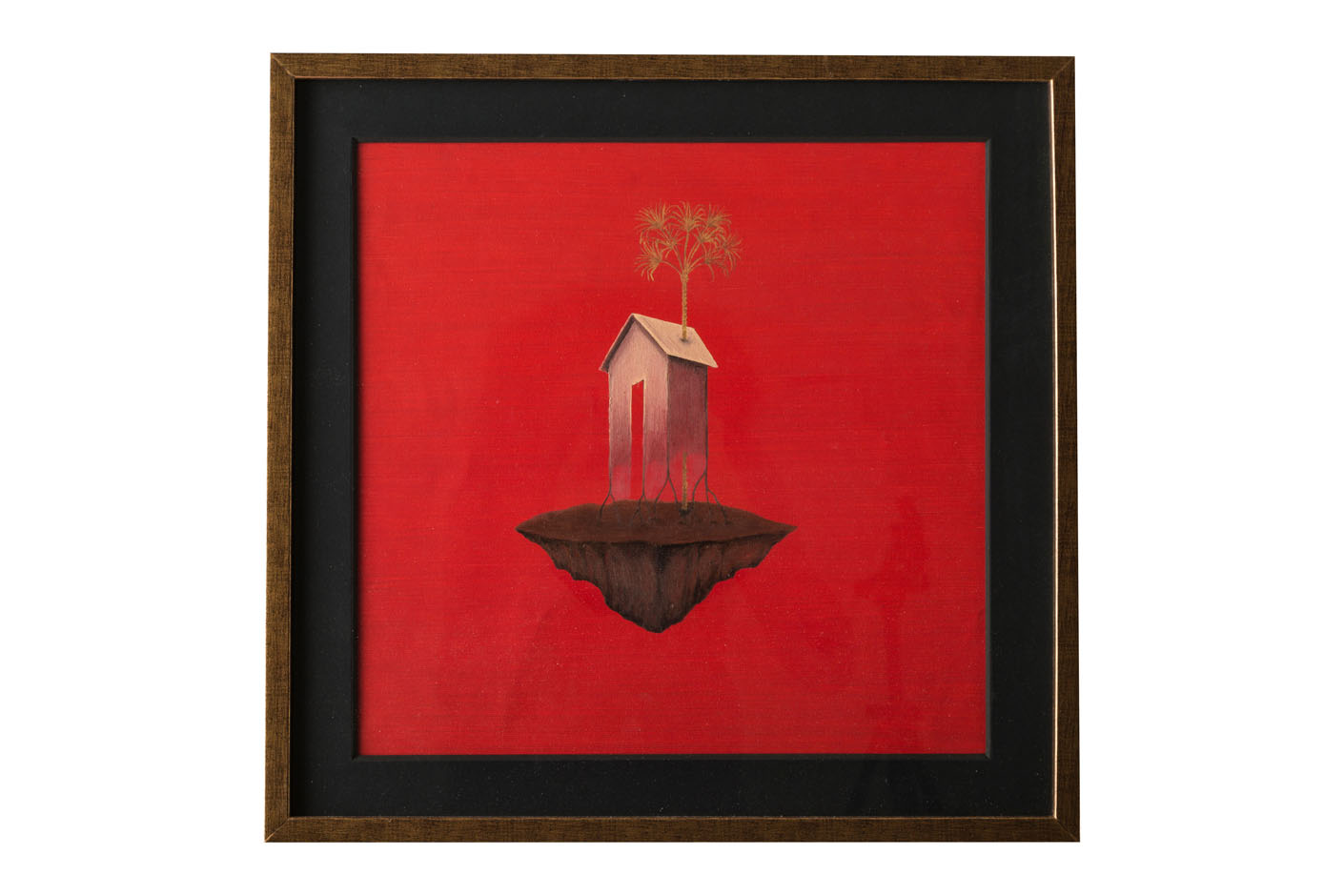Artist
Houda Terjuman
Uprooted Home
2019, Oil on canvas. Courtesy the artist
Seat Dancing in Our Infantile Amnesia
2019, Oil on canvas. Courtesy the artist
Bridges Not Fences
2019, Oil on canvas. Courtesy the artist
Uprooted Trees
2019, Oil on canvas. Courtesy the artist
WEBSITE
BACK TO THE EXHIBITION
For this exhibition, Houda Terjuman has created a miniature world that weaves stories through sculpture and painting, highlighting different migratory experiences.
In the sculpture The Road Less Taken, Terjuman depicts a minuscule boat as a vessel of hope, however small. The boat carries a palm tree, which becomes a symbol for settling and putting down roots, yet the whole arrangement is suspended, as if removed from both place and time. Referring to roots both physical and metaphorical, Uprooted Home investigates themes of memory and nostalgia in relation to migration. A house, seemingly abandoned with a tree growing through it, appears to be fading from view, taking on a dreamlike quality as it sits isolated on its floating fragment of earth. In Seat Dancing in Our Infantile Amnesia,
Terjuman uses an empty chair to symbolize the dichotomy between the objects left behind in a move and the ones that keep us connected with our roots. The palm tree appears once again, growing upwards through the chair. The paintings of Terjuman seem to add a hopeful message to the installation, inviting us to build connections and empathize with others, spreading our roots to become global citizens.
Houda Terjuman (1970) was born to a Syrian father and a Swiss mother in Morocco, where she lives today. When she was a child, her father told her that as migrants they had no safety net, so integration was vitally important for survival. However, Terjuman chose instead to cherish her hybrid identity, drawing strength from the mixture of languages and cultures she grew up with, and situating her art practice within this context. Recent exhibitions include a group show at Primo Marella Gallery (Milan, Italy), 2018; a live performance at Institut du Monde Arabe (Paris), 2018; a solo show at Casa Arabe (Madrid), 2018; a group show at Galerie Michael Hass (Berlin), 2019; and a research project at Arts Cabinet (London), 2019.






























